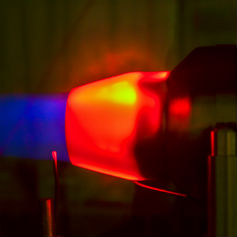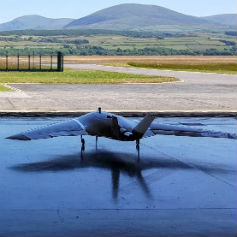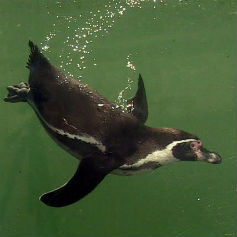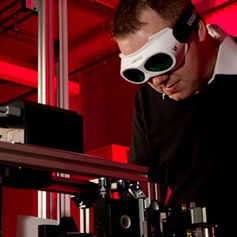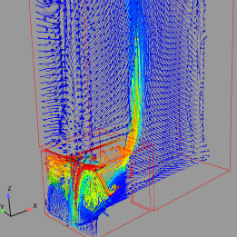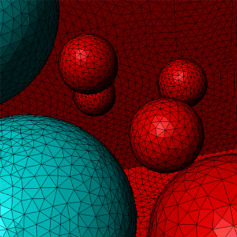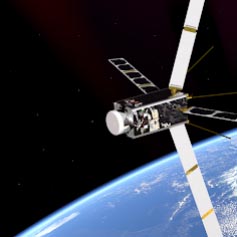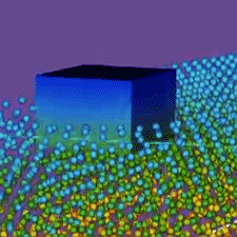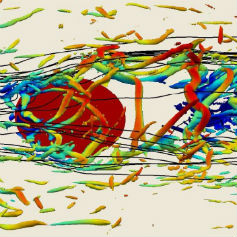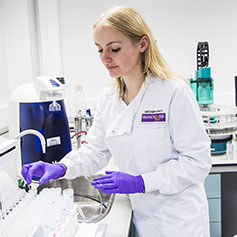
Modelling and simulation
Modelling and simulation is cross-cutting to address computational modelling at multiple scales, informed and validated by unique experimental studies, and key to advancing fundamental engineering analysis.
Leading facilities
The Department's unique experimental facilities include a wide wave-current flume, multiple wind tunnels, and specialist thermal hydraulics facilities.
Modelling and simulation significantly enhances our deep, fundamental fluid and solid mechanics research. We have developed a new conceptual framework for solids modelling through fracture analysis, ab initio modelling of irradiation damage, in order to model the seismic response of the whole core of a reactor.
Turbulence modelling is a core topic, while conjugate thermal analysis and complex non-Newtonian flows and hypersonic flows are emerging research areas. Significant progress has been made with coupled fluid-structure interaction problems using a range of methods including superlative expertise in smoothed-particle hydrodynamics and Lattice Boltzmann solvers. Massively parallel computing is essential and novel efficient and inexpensive parallel computing is being advanced through GPUs (graphics processing units) and mobile platforms along with development of real-time CFD methods to enable the rapid evaluation of designs and for improved local simulation.
Experimentation is vital for understanding multiphase and highly non-linear flows and this is enabled by the Department's unique experimental facilities including a wide wave-current flume, multiple wind tunnels, specialist thermal hydraulics facilities for high pressure and high temperature conditions for rotating conditions at large-scale, and engine test laboratories.
Areas of expertise
Our researchers specialise in the following areas of expertise:
-
Aerodynamics
The use of ground and flight-based experimental test techniques to improve design and grow innovative aerodynamics concepts for the future.
Read more
-
Aerospace vehicle systems
We work at the frontier of what is possible in the design and operation of unmanned vehicles that operate in the Earth’s atmosphere and under water.
Read more
-
Biomimetics
We study nature to inspire future technologies. Adaptations in animals that walk, jump, fly and swim provide us with clues for game-changing design.
Read more
-
Laser processing
Laser material processing is a multidisciplinary subject, covering multi-physical processes such as thermal, mechanics and optical modelling in multi-scales.
Read more
-
Modelling and simulation
Our researchers focus on a number of areas in solid and fluid mechanics, from the microstructure of materials to the flow of ocean currents.
Read more
-
Mechanics and physics of solids
Understanding and modelling the life of engineering materials and structures during their service.
Read more
-
Space systems engineering
Our research provides innovative solutions across the space sector, by developing novel technologies and concepts for the utilisation and exploration of space.
Read more
-
SPH @ Manchester
Smoothed particle hydrodynamics (SPH) is one of the most exciting new areas in the field of computational fluid dynamics.
Read more
-
Thermofluids
Research into fluid mechanics, encompassing renewable energy, thermal power, nuclear hydraulics and turbulence modelling.
Read more
-
Healthcare engineering
Our world-leading expertise in biomechanics, computational fluid dynamics and 3D bioprinting is enabling a new generation of treatments for a wide range of medical conditions.
Read more
Research outputs
Explore recent publications from our Department in the University's database.
Explore our publications
Find a PhD
Discover the postgraduate research opportunities available in MACE.
Research projects

